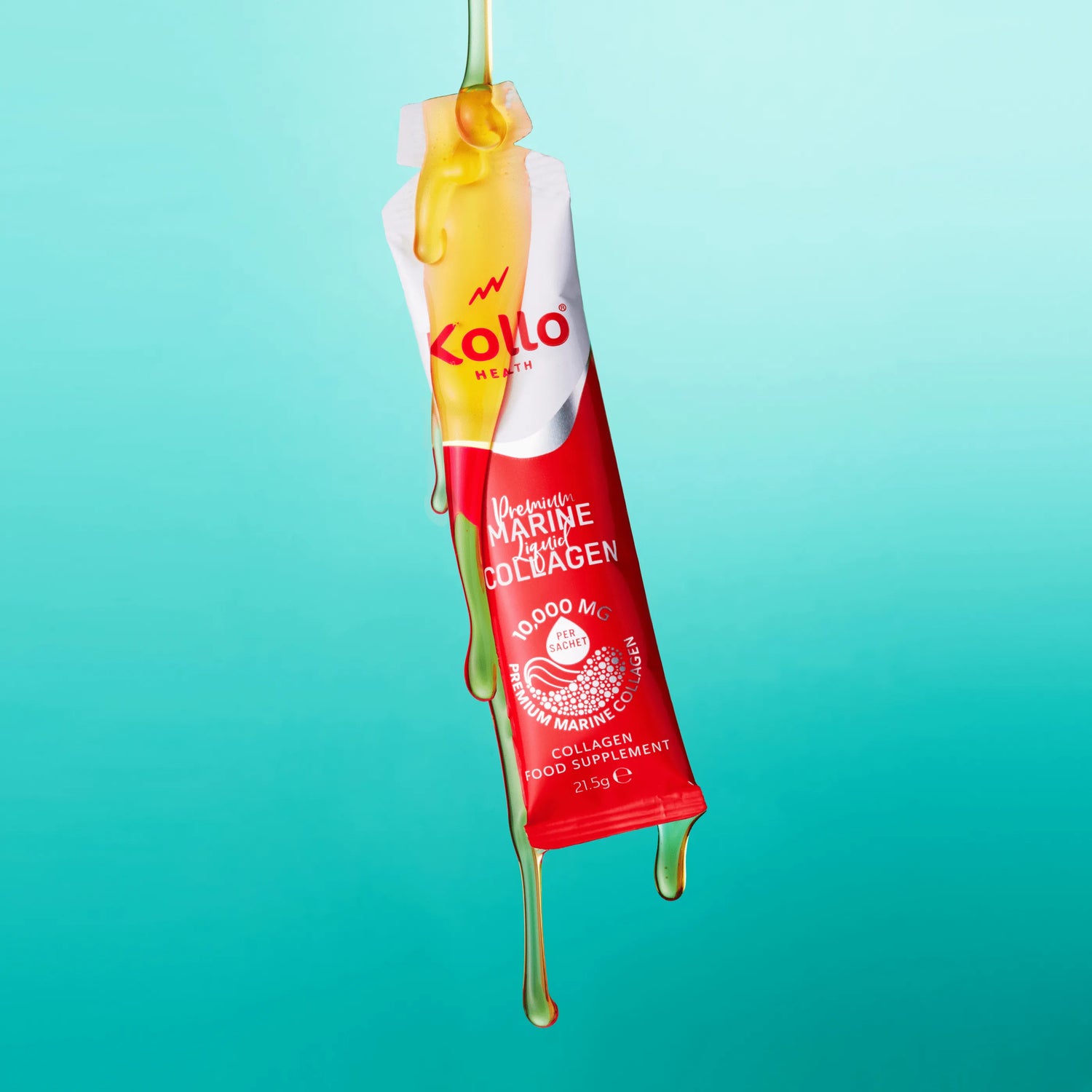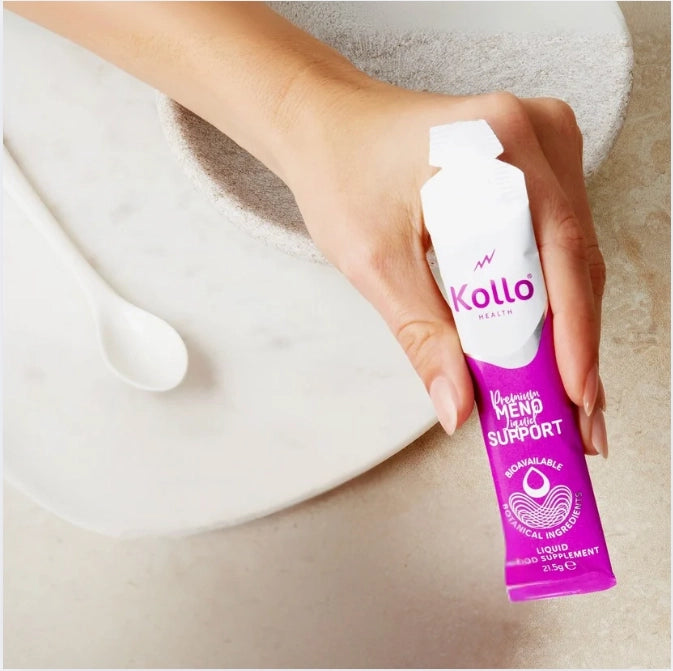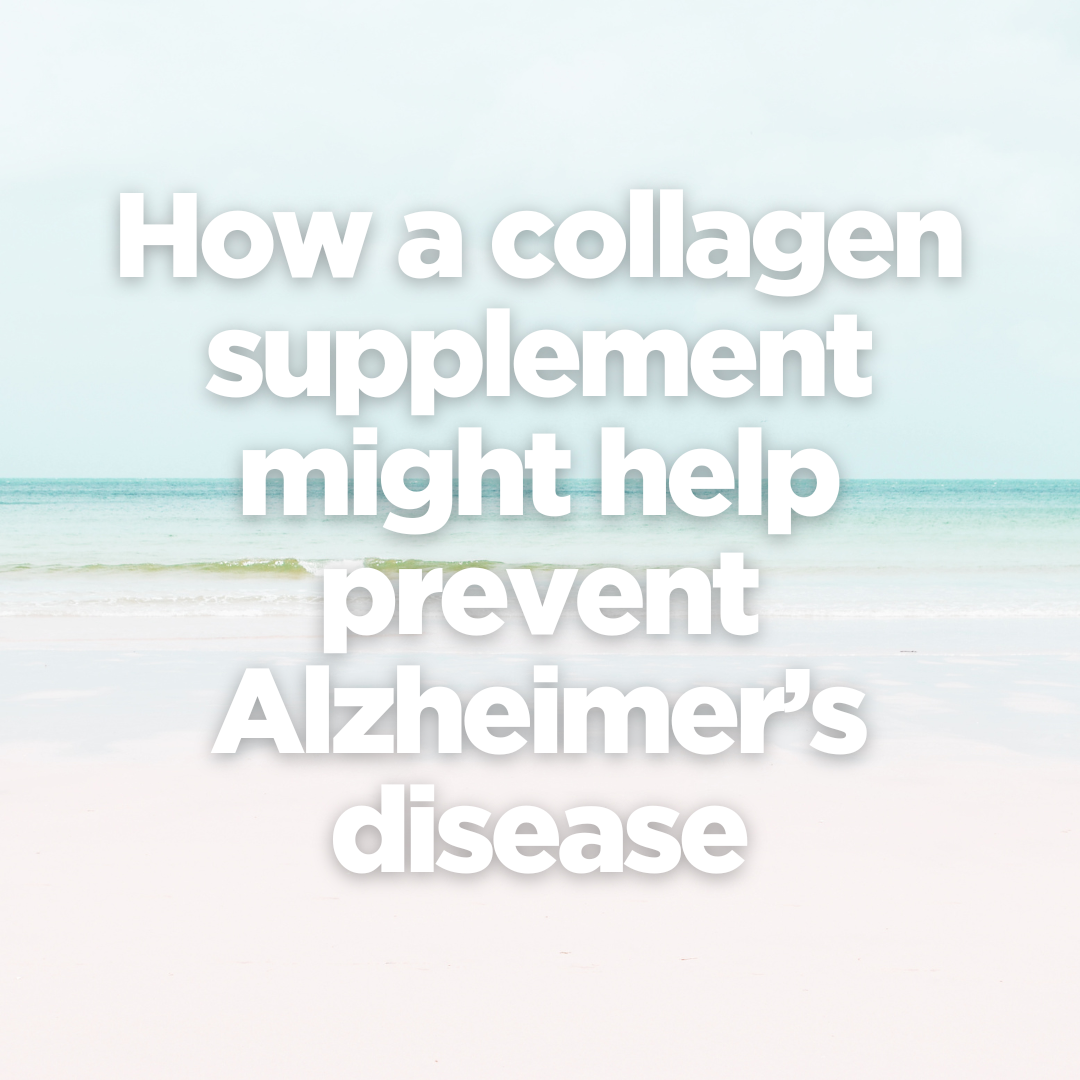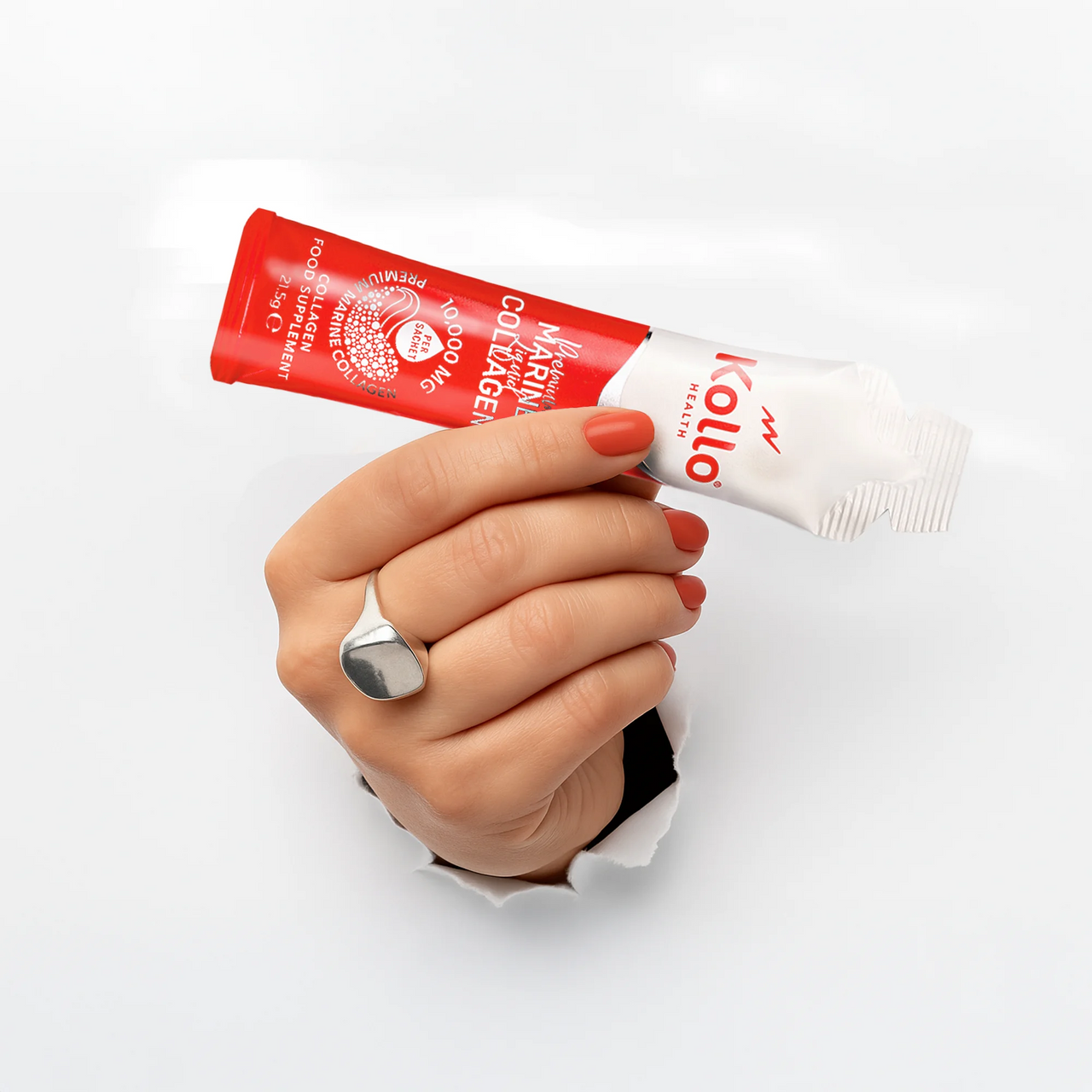How a collagen supplement might help prevent Alzheimer’s disease
The humble collagen supplement can help with a lot of things. It promotes good skin health and fights against the signs of ageing. It's good for your joints and bones, and it can even be helpful for many symptoms of menopause. But studies have shown that it may also be another line of defence against Alzheimer’s disease. Dementia is a huge problem for health in later life and a great fear for many of us. If you are already taking steps to prevent conditions like Alzheimer’s, collagen is a promising prospect.
Read on to learn more.
What does a collagen supplement do?
Collagen is a protein that exists virtually everywhere in our bodies. It helps provide structure and elasticity to skin. It keeps bones strong and gives good health and suppleness to our joints. There are many different types of collagen, and some even play important roles in the health of our arteries, gut and brain.
Our ability to produce collagen is very important for maintaining the health of all these areas of our bodies. Unfortunately, as we get older, we lose collagen at a faster rate. Moreover, our ability to produce new collagen slows. This results in lower levels of collagen overall, causing a number of problems in our bodies. Worse still, things like menopause can cause this collagen decline to accelerate even further.
A collagen supplement supplies the body with the fuel it needs to ramp up collagen production. Amino acids like glycine and proline are not always easy to come by in large quantities from diet alone. And as you age, your body needs a consistent supply of these collagen fuels. Furthermore, you need lots of B vitamins, vitamin C and various other nutrients to keep collagen production flowing. By taking a high-quality supplement, you give yourself a consistent supply of those all-important nutrients.
How important is collagen type in supplements?
Many brands will claim their collagen supplement is better for producing a certain type of collagen. We know that the skin is abundant in collagen Type I, while the joints need Type II. This is why certain supplements make claims about being better for joints or skin. The collagen they contain comes from animals, and different sources tend to supply different collagen types.
In reality, the collagen type you consume is largely irrelevant. Your body needs fuel to produce collagen, and it will use it to produce different collagen types. What’s most important is that the purity and integrity of the collagen you take is high. If a collagen supplement contains contaminated ingredients, it could be harmful for your health. Avoid supplements that come from animals exposed to unethical farming practices. Aquaculture-farmed fish or grass-fed cows tend to have the lowest chances of harmful contamination.
So how can a collagen supplement help prevent Alzheimer’s disease?
A 2008 study by the Gladstone Institute of Neurological Disease made an interesting discovery about collagen. They were studying amyloid-beta (Aβ) proteins. These are widely believed to be fundamental to the development of Alzheimer’s disease (AD). They discovered compelling evidence that collagen type VI can protect brain cells against these Aβ proteins.
The discovery was first made studying mice, when they detected an increase in the presence of collagen VI. The mice with AD had higher levels of collagen VI. Subsequently, they studied brain tissue from AD patients, comparing it to the brains of people without dementia. They made a similar discovery– AD patients had higher levels of collagen VI. Moreover, this increased presence was in neurons, which are the cells that Aβ proteins attack when Alzheimer’s takes hold.
This was a groundbreaking discovery and led to a new question. Does collagen VI contribute to neuron damage or is it a defence mechanism against it?
What were the findings?
To find an answer, the scientists performed tests on cell cultures. In the lab, these experiments revealed something very interesting. When Aβ proteins were added to neurons, it triggered the release of collagen VI as an immune response. Observing this, the scientists discovered that collagen VI in these cultures provided protection against Aβ toxicity.
The conclusion was that the increase in collagen VI is a method of defending against Alzheimer’s disease. When that collagen is present around the vulnerable neurons, it blocks the Aβ proteins from binding to the cells. This is something that is still being explored today as a possible avenue for treatment and cure.
For us, as individuals, there is a clear message. Being able to produce lots of collagen Type VI may help protect our brains against Alzheimer’s. This presents a strong case for using a collagen supplement. If you keep providing your body with the fuel it needs to produce collagen, it may be better equipped to protect itself against dementia. This is in addition to all the other benefits, including:
-
Healthier skin
-
Stronger bones
-
Pain-free joints
-
Improved arterial health
There is no known risk associated with taking a collagen supplement. But the benefits are there for the taking. And if one of those benefits is improved resilience against Alzheimer’s, you don’t want to miss out!
What else can I do to promote collagen production?
At Kollo, we advocate for a ‘pro-collagen lifestyle’. This is something that Dr James Dinicolantonio recommends in his book ‘The Collagen Cure’. A good collagen supplement is fundamental to this, but there are other factors as well.
Avoiding harmful habits
There are certain behaviours that damage our collagen. For your skin, excessive exposure to sunlight is a major one. Spend too much time unprotected in even mild sunshine and your skin collagen will suffer.
Other bad habits include:
-
Smoking
-
Eating too much sugar and refined carbohydrates
-
Exposure to air pollution
-
A high-stress lifestyle
Engaging in good habits
On the flipside, there are things you should be doing to help protect your collagen. To counter the sunlight issue mentioned above, you should always wear sunscreen outdoors and avoid intense sunshine.
You should also:
-
Get 7-8 hours sleep every night
-
Drink lots of water
-
Exercise regularly
Diet
As collagen production relies on nutrients, a good diet is important as well. We have written about the collagen before. A collagen supplement is important for providing a consistent dosage of the basic fuels your body needs. But the right foods can enhance this effect. They can help boost your collagen production further and also reduce the damage to existing collagen. Consequently, your overall collagen health will be maximised.
The nutrients you need for collagen production include:
-
B vitamins
-
Vitamin C
-
Zinc Copper
-
Chlorophyll
-
Antioxidants
-
Protein
You should aim to eat a range of foods that offer these nutrients. A mix of animal and plant-based sources is ideal. Some meat-eaters are prone to neglecting the importance of vegetables, seeds, pulses, beans and nuts. Look for ways to get plenty of these foods into you whilst avoiding sugar, saturated fat and alcohol where possible.
Why should I choose Kollo as my collagen supplement?
Kollo is a leading marine collagen supplement known for its high quality. We provide bioavailable collagen peptides sourced from the skin and scales of aquaculture-farmed fish. Our formula is fortified with B vitamins, vitamin C and l-lysine to make it even more potent. Moreover, we suspend it in a liquid formula so your body can absorb the contents in no time. The delicious tropical taste is sugar-free and all you have to do is empty a sachet into water and drink it. Getting your daily collagen dosage couldn’t be simpler.
Speaking of dosage, Kollo gives you 10 grams of premium-grade marine collagen peptides every day. This dosage is enough to deliver the full range of benefits, according to the science. And with such an abundance of collagen fuel, your body will be better equipped to produce collagen Type VI when it is needed. If this truly does protect against Alzheimer’s disease, you will want to be ready to make it fast!
Learn more about Kollo
We are a brand that values our customers. This is why we publish a full section of unedited customer reviews on our website. Transparency is important to us as well, so we provide a veritable bounty of information in the ‘About’ section on our website. For anyone looking to learn more about the power of the collagen supplement, our blog is your encyclopaedia of knowledge. Take a dip into it and you will find answers to questions you didn’t even know you had!
If you still need to ask us anything, you can reach us via email or social media. We would love to hear from you and our team is ready to answer your questions as quickly as possible.







